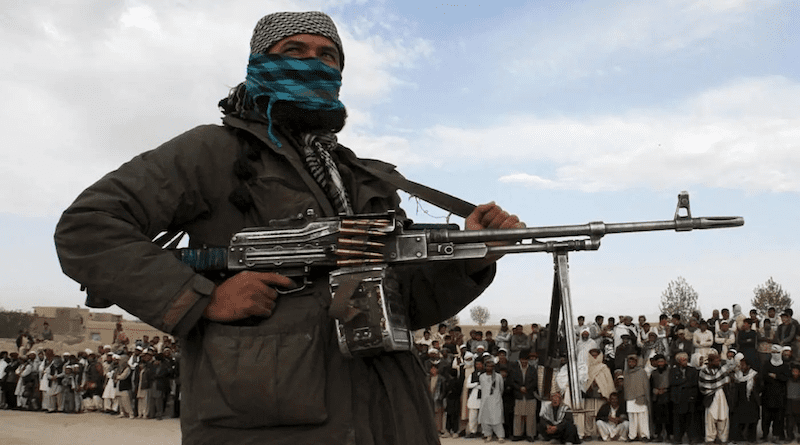The TTP’s Downfall: Pakistan’s Success Story In Counter-Terrorism – OpEd
By Talha Imran
Pakistan has been facing a major insurgency challenge from the Tehreek-e-Taliban Pakistan (TTP), a banned terrorist group that has killed thousands of civilians and security personnel in the past decade. The TTP has also targeted Chinese interests in Pakistan, posing a threat to the China-Pakistan Economic Corridor (CPEC) project. However, in the year 2022, Pakistan has achieved significant success in eliminating some of the most wanted TTP terrorists, both inside Pakistan and across the border in Afghanistan.
TTP Infighting and Losses
One of the factors that contributed to Pakistan’s success was the infighting among various factions of the TTP over funds and positions within the militant organization. This resulted in several clashes and killings among rival TTP commanders and fighters, weakening their operational capacity and cohesion. According to sources in Afghanistan, the latest bout of infighting within TTP ranks was due to funds and positions within the militant organisation.
Some of the prominent TTP commanders who were killed or injured due to infighting in Afghanistan including Muhammad Khurasani alias Khalid Balti, TTP spokesperson and operational commander killed on Dec 9, 2021.
Pakistan’s Counter-Terrorism Operations
Another factor that contributed to Pakistan’s success was its counter-terrorism operations against the TTP and its affiliates inside Pakistan and across the border in Afghanistan. Pakistan’s security forces conducted intelligence-based operations (IBOs), air strikes, and raids to target the hideouts and networks of the TTP terrorists.
International scholars have validated Pakistan’s position and praised Pakistan’s efforts. Dr. Marvin Weinbaum, a scholar at the Middle East Institute and a former analyst at the U.S. Department of State, said that Pakistan has shown remarkable resolve and capability in fighting the TTP and its affiliates, despite the challenges posed by the situation in Afghanistan. He said: “Pakistan has suffered a lot from cross-border terrorism coming from Afghanistan for a long time. It has also been a key partner in the global war on terror for 20 years. It has lost more than any other country in terms of lives and resources. It has also achieved remarkable success in eliminating the TTP and its affiliates from its land. It has conducted effective counter-terrorism operations against the group, both inside Pakistan and across the border in Afghanistan. It has also cut off the group’s financial and logistical networks, and captured or killed many of its top leaders and commanders. Pakistan has proven that it can handle the TTP threat with its own resources and capabilities, without relying on any external support or mediation.”
Dr. Anatol Lieven, a professor at Georgetown University and a former journalist covering South Asia, said that Pakistan has demonstrated its resilience and courage in fighting the TTP and other terrorist groups, despite the difficulties caused by the situation in Afghanistan. He said: “Pakistan has been a leading partner in the global war on terror for 20 years. It has faced a brutal insurgency from the TTP and other terrorist groups, which have killed tens of thousands of civilians and security personnel. It has also faced external pressure and interference from regional and global actors. Despite these challenges, Pakistan has made remarkable progress in fighting terrorism and promoting peace and stability in the region. It has launched successful military operations against the TTP and its affiliates, both inside Pakistan and across the border in Afghanistan. It has also improved its border management and security cooperation with Afghanistan. Pakistan has shown its resilience and courage in fighting terrorism and securing its interests at home and abroad.”
Ambassador Richard Olson, a former U.S. special representative for Afghanistan and Pakistan, said that Pakistan has received international recognition and appreciation for its efforts and achievements in combating the TTP and other terrorist groups. He said: “Pakistan has been a target of cross-border terrorism originating from Afghanistan for a long time. It has also been a vital ally in the global war on terror for two decades. It has paid a heavy price in terms of lives and resources. It has also made remarkable achievements in eliminating the TTP and other terrorist groups from its land. It has carried out effective counter-terrorism operations against the group, both inside Pakistan and across the border in Afghanistan. It has also shared credible evidence of the group’s links with other terrorist groups, such as IS-K and al-Qaeda, as well as their support from hostile regional actors. The international community has acknowledged and appreciated Pakistan’s role and contribution in fighting terrorism and promoting peace and stability in the region.”
Pakistan has made significant progress in eliminating some of the most wanted TTP terrorists who had attacked security forces, carried out suicide bombings at public places, killed innocent civilians and had head money by the Pakistan government. Pakistan has also disrupted the operational capacity and cohesion of the TTP by exploiting its internal rifts and conducting counter-terrorism operations. However, Pakistan still faces a major insurgency challenge from the TTP as the group continues to launch attacks from its bases in Afghanistan with the patronage of the Afghan Taliban. Pakistan needs to continue its efforts to neutralize the threat of the TTP and secure its interests at home and abroad.
Talha Imran is researcher and Lecturer at National University of Modern Languages (NUML), Islamabad.


Unfortunately, the frequency and intensity of TTP attacks on Pakistani security forces doesn’t indicate that Pakistan army has got the upper hand. Nevertheless, borrowing famous Urdu poet Mirza Ghalib’s line “dil ko khush rakhne ke liye Ghalib yeh khyaal accha hai!” [to keep the heart happy by living in fantasy is a good idea]